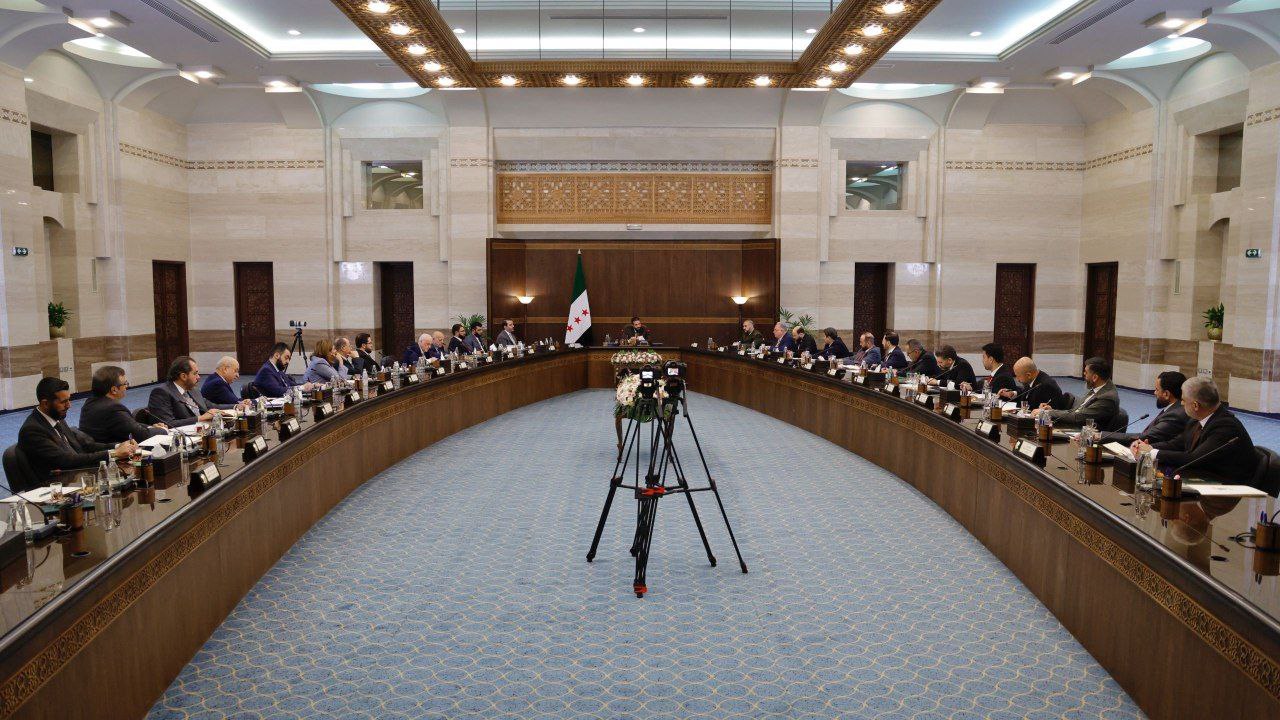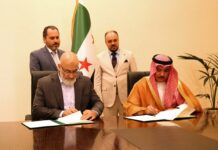
In a high-level cabinet meeting chaired by Syrian President Ahmad al-Sharaa on Friday, May 30, the Syrian government laid out a sweeping agenda for national reconstruction and economic revitalization, marking what officials described as the country’s transition from recovery to resurgence.
The meeting, held in the capital, brought together key ministers to assess the status of reforms and map out upcoming phases of governance. Addressing the cabinet, President Sharaa called the moment “a historic opportunity” for Syria, citing the lifting of US sanctions and growing international interest in investment.
Diplomacy Shifts Gears
Foreign Minister Asaad al-Shaibani offered a comprehensive update on Syria’s diplomatic gains over the past six months. These include the reopening of consulates in cities such as Jeddah, Gaziantep, and Bonn, and the return of Syria’s flag to the UN.
“We are no longer in the phase of confidence-building,” Shaibani said, adding that Syria was reasserting its international presence.
He highlighted the development of relations with neighboring countries, like Jordan and Lebanon, and strengthening regional and international relations through the reinstatement of various diplomatic ties.
Internal Security and Economic Gaps
Security concerns took center stage as well, with Intelligence Chief Hussein al-Salama briefing ministers on operations against ISIS remnants, Assad regime remnants, and smuggling networks. Defense Minister Murhaf Abu Qasra noted full consolidation of armed factions under the Ministry of Defense and proposed promotions for 2,500 defected officers as part of the institutional restructuring.
Finance Minister Muhammad Barniyeh painted a cautious but hopeful economic picture, emphasizing ongoing efforts to reduce budgetary deficiencies through financial bonds and tax reforms. A major salary restructuring, with an initial 200% increase, is also underway.
“We expect Syria to become a low-indebted country next year,” Barniyeh said, referencing planned reforms and anticipated foreign capital inflows.
Investment Push Gains Momentum
Among the most striking developments discussed was the recent $7 billion energy sector agreement with a consortium led by Qatari firm Eurocon Holding. This project, which includes partners from the US, Turkey, and Europe, aims to rebuild Syria’s power infrastructure and lay groundwork for broader development.
Central Bank of Syria (CBS) Governor and Minister of Administrative Development both emphasized the need to restore public confidence in institutions. The governor announced a new currency printing project and enhancements to Syria’s electronic payment systems.
Sharaa concluded the session by outlining legislative reforms designed to ease foreign investment, calling for the introduction of digital currency, and reaffirming a national “battle against poverty,” anchored in education and labor market revitalization.
Change Notice: This article was amended May 31. 2025 4:57 pm.








